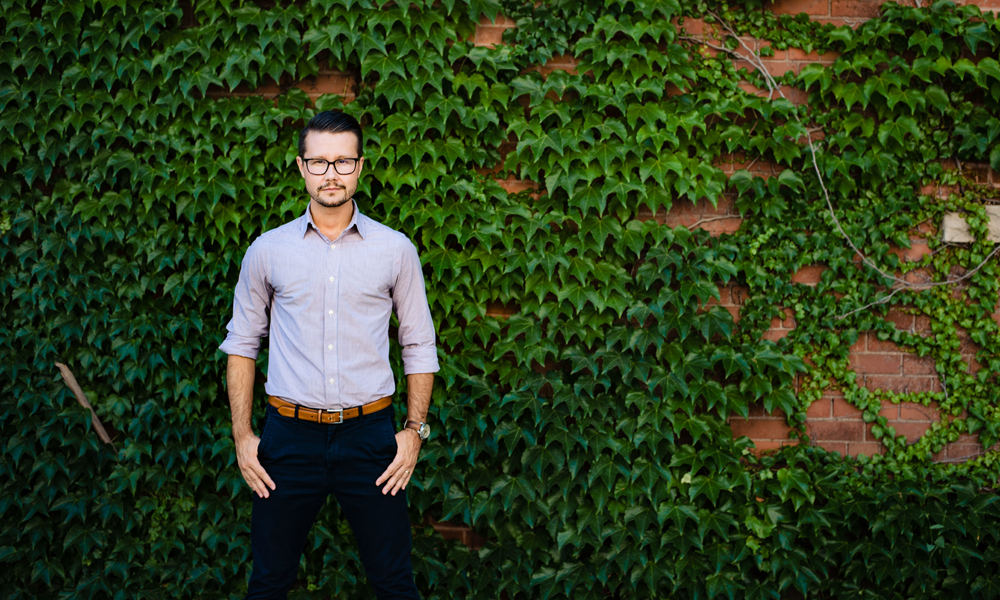This year between November 13–19, we join together to recognize Transgender Awareness Week…
By Dr. Alex Abramovich
Brought to you by FIDO
Click here to read this article in French/Cliquez ici pour lire l’article en français
I came out as trans 11 years ago while I was a PhD student working at a busy downtown hospital. I was interviewing a young trans person experiencing homelessness who turned to me midway through our interview and said, “You’re trans, right? What do you do when people stare at you on the subway?”
I had indeed been struggling with strangers staring at me in public, being asked, “Are you a boy or a girl?” and being chased out of nearly every public bathroom I went into. Regardless, I knew I had to be honest with myself and finally come out. How could I possibly devote my life’s work to issues regarding 2SLGBTQ+ youth health and homelessness, and interview countless youth about their lives and coming out experiences, while not being my authentic self?
I will always be grateful to the young person who, unintentionally, pushed me out of the closet and encouraged me to come out. However, there was nothing easy about my coming out or about the years that followed. Transphobic language and discrimination was very much engrained into the culture of most institutional settings, and in many ways it still is. As an openly trans man with a strong personal connection to the work I do, I am often asked offensive questions and expected to educate people about anything trans-related. Some people still do not see beyond my trans identity, and instead see that as the defining factor of my existence. For example, some refer to me as “the trans scientist,” rather than focusing on my areas of expertise or accomplishments.
These examples illustrate the importance of devoting certain days or weeks to trans education and public awareness.
Transgender Awareness Week, which is observed annually during the second week of November (this year from November 13–19, 2021), is meant to help educate and raise public awareness of the barriers and challenges that trans people often face in society. It is also meant to encourage the public to help end transphobic stigma and discrimination.
Following Transgender Awareness Week every year, we commemorate the lives of trans people around the globe who were killed because of transphobic hatred and violence. On November 20, the International Transgender Day of Remembrance (TDOR), we publicly mourn and honour transgender people whose lives were taken simply for living authentically. TDOR also raises public awareness of the violent reality that so many of us continue to face on a daily basis here in Ontario, across Canada, and around the globe.
Every year the list of names of trans people murdered across the world grows. Trans women or transfeminine people account for the vast majority of those murdered, especially Indigenous and Black trans women, who experience disproportionate rates of violence, poverty and homelessness. They are stigmatized, silenced and made to be invisible in every possible way.
Transphobia has serious consequences on the lives of trans people. Transphobia is dangerous, toxic, violent; it leads to suicide, and is literally killing trans people daily.
The fight for trans rights is far from over. We all need to stand up against violence and discrimination towards trans people, so that all trans people can safely go to work and school, and access public bathrooms, hospitals and healthcare facilities, without having to fear for their lives. Trans people deserve these basic rights, just like anyone else. Trans youth deserve to grow up in a world where it is not a “revolutionary act” to just be themselves.
I hope for a future where trans youth grow up not having to worry about whether they will be kicked out of the house or lose all of their friends and family for living authentically. I also hope for a future where we no longer need to gather on November 20, because trans lives are valued.
—
DR. ALEX ABRAMOVICH is a scientist at the Institute for Mental Health Policy Research, Centre for Addiction and Mental Health (CAMH), and an assistant professor at the University of Toronto. He is an award-winning, internationally recognized leader in the area of 2SLGBTQ+ health and homelessness. His research has led to ground-breaking practice and policy reform, including the launch of Canada’s first dedicated transitional housing program for 2SLGBTQ+ youth. He has worked closely with all levels of government to develop policies and strategies that address the needs of 2SLGBTQ+ individuals, and is committed to research that successfully and ethically engages marginalized populations.








POST A COMMENT